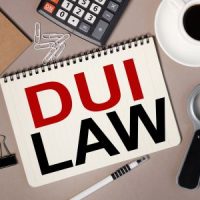Can a Florida Prosecutor “Comment” on Your Right to Remain Silent?

In any criminal proceeding, the federal and Florida state constitutions guarantee your right to remain silent. This means you do not have to testify at your own trial. It also means that if you do so, the jury is not allowed to assume or infer your guilt based on your decision to remain silent. Ultimately, it is the state that has the burden of proving your guilt beyond a reasonable doubt, not your burden to prove your innocence.
Florida Court Orders New DUI Trial Due to Prosecutor’s Improper Closing
It follows from these basic principles that a prosecutor cannot make comments to the jury that suggest a defendant has done something wrong by choosing not to testify. Indeed, a Florida appeals court recently overturned a DUI conviction because of improper remarks made by a prosecutor during closing arguments. The appellate court felt the error was not “harmless,” but rather compromised the integrity of the entire trial.
The specific comments in question referred to the defendant’s refusal to take various field sobriety tests requested by the officers who arrested him. During closing, the prosecutors reiterated several times that the defendant had an “opportunity” to “dispel the suspicions” about his potential drunk driving by submitting to the tests.
This was apparently persuasive enough to convince the jury to convict the defendant. The Florida Fourth District Court of Appeal, however, said the prosecutor’s arguments improperly shifted the burden of proof to the defendant. The Court noted that a defendant’s refusal to submit to a field sobriety test “may be admissible” to prove a defendant’s “consciousness of guilt.” But in this case, the prosecutor’s actions crossed the line into commenting on a defendant’s constitutional right to remain silent.
Admittedly, this is a fine line. Essentially, a prosecutor can argue that a DUI defendant’s refusal to participate in a field sobriety test shows consciousness of guilt–i.e., they know they were drunk and feared failing the tests. What the prosecution cannot do, however, is argue that an “innocent person would volunteer” to take such tests to “prove” their innocence. That is shifting the burden.
The use of such arguments is especially problematic where, as in this case, the state’s other evidence was not particularly strong. The Fourth District noted there was no evidence that the defendant here engaged in “erratic driving” before he was pulled over. Nor were there any Brethalyzer results or other roadside tests suggesting intoxication. As such, the defendant was at least entitled to a new trial.
Contact the Joshi Law Firm Today
Drunk driving cases in Florida are often weaker than the police or prosecution might suggest. Officers are often quick to infer DUI based on innocent behaviors that may simply reflect a driver’s unease at a sudden encounter with the police. That is why it is important to remember you always have the right to remain silent, as well as to contact a qualified Orlando DUI lawyer who can assert your rights in court. Call the Joshi Law Firm, PA, today at 844-GO-JOSHI or contact us online to schedule a free initial consultation.
Source:
4dca.flcourts.gov/content/download/2439019/opinion/Opinion_2023-2171.pdf

